
OR
N. Korea fires another missile, flies warplanes near border
Published On: October 14, 2022 07:54 AM NPT By: Associated Press
_20221014075643.jpeg)
SEOUL, South Korea, Oct 14: North Korea early Friday launched a short-range ballistic missile toward its eastern waters and flew warplanes near the border with South Korea, further raising animosities triggered by the North’s recent barrage of weapons tests.
South Korea’s military also said it detected North Korea firing about 170 rounds of artillery from eastern and western coastal areas near the border region and that the shells fell inside maritime buffer zones the Koreas established under a 2018 military agreement on reducing tensions.
The North Korean moves suggest it would keep up a provocative run of weapons tests designed to bolster its nuclear capability for now. Some experts say North Korea would eventually want the United States and others to accept it as a nuclear state, lifting economic sanctions and making other concessions.
South Korea’s Joint Chiefs of Staff said in a statement the missile lifted off from the North’s capital region at 1:49 a.m. Friday (1649 GMT Thursday; 12:49 p.m. EDT Thursday).
While none of the North Korean artillery shells fell inside South Korean territorial waters, the Joint Chiefs of Staff described the firings as a clear violation of the 2018 agreement, which created buffer zones along land and sea boundaries and no-fly zones above the border to prevent clashes.
Friday’s ballistic launch extended a record number of missile demonstrations by North Korea this year as it exploits the distraction created by Russia’s war on Ukraine to accelerate its arms development and increase pressure on Washington and its Asian allies.
In response to North Korea’s intensifying testing activity and hostility, South Korea on Friday imposed unilateral sanctions on the North for the first time in five years, targeting 15 North Korean individuals and 16 organizations suspected of involvement in illicit activities to finance North Korea’s nuclear weapons and missile program.
Japanese Defense Minister Yasukazu Hamada said the missile flew on an “irregular” trajectory — a possible reference to describe the North’s highly maneuverable KN-23 weapon modeled on Russia’s Iskander missile.
“Whatever the intentions are, North Korea’s repeated ballistic missile launches are absolutely impermissible and we cannot overlook its substantial advancement of missile technology,” Hamada said. “North Korea’s series of actions pose threats to Japan, as well as the region and the international community, and are absolutely intolerable.”
The South Korean and Japanese militaries assessed that the missile traveled 650 to 700 kilometers (403-434 miles) at a maximum altitude of 50 kilometers (30 miles) before landing in waters between the Korean Peninsula and Japan.
The U.S. Indo-Pacific Command said in a statement the North Korean launch didn’t pose an immediate threat to U.S. personnel or territory, or to its allies, adding that the U.S. commitments to the defense of South Korea and Japan remain “ironclad.”
It was the latest in a series of missile launches by North Korea in recent weeks.
North Korea said Monday that its missile tests in the past two weeks simulated nuclear attacks on key South Korean and U.S. targets. It said the tests included a new intermediate-range missile that flew over Japan and demonstrated a potential range to reach the U.S. Pacific territory of Guam, and a ballistic missile fired from an inland reservoir, a first for the country.
North Korea said the weapons tests were meant to issue a warning to Seoul and Washington for staging “dangerous” joint naval exercises involving a U.S. aircraft carrier.
Friday’s launch was the North’s second since its announcement on the simulation of nuclear strikes. Some observers had predicted North Korea would likely temporarily pause its testing activities in consideration of its major ally China, which is set to begin a major political conference Sunday to give President Xi Jinping a third five-year term as party leader.
North Korea said leader Kim Jong Un supervised the test-launches Wednesday of long-range cruise missiles that he said successfully demonstrated his military’s expanding nuclear strike capabilities.
After the tests, Kim praised the readiness of his nuclear forces, which he said were fully prepared for “actual war to bring enemies under their control at a blow” with various weapons systems that are “mobile, precise and powerful.” He also vowed to expand the operational realm of his nuclear armed forces, according to KCNA.
There are concerns that Kim could up the ante soon with his first nuclear test since 2017 or by triggering military skirmishes with the South that could be followed by threats of using his nukes.
The Koreas have so far avoided major skirmishes following their 2018 military agreement, which is one of the few tangible remnants from former South Korean President Moon Jae-in’s engagement efforts with Kim.
Moon also helped set up Kim’s first summit with former U.S. President Donald Trump in June 2018, but the diplomacy collapsed after the second Kim-Trump meeting in February 2019, when the Americans rejected North Korean demands for major sanctions relief in exchange for a partial surrender of their nuclear capabilities.
The urgency of North Korea’s nuclear program has grown since it passed a new law last month authorizing the preemptive use of nuclear weapons over a broad range of scenarios, including non-war situations when it may perceive its leadership as under threat.
Most of the recent North Korean tests were mostly of short-range nuclear-capable missiles targeting South Korea. Some experts say North Korea’s possible upcoming nuclear test, the first of in five years, would be related to efforts to manufacture battlefield tactical warheads to be placed on such short-range missiles.
These developments sparked security jitters in South Korea, with some politicians and scholars renewing their calls for the U.S. to redeploy its tactical nuclear weapons in South Korea as deterrence against intensifying North Korean nuclear threats.
South Korea’s Joint Chiefs of Staff said in a separate statement that North Korea had flown warplanes, presumably 10 aircraft, near the rivals’ border late Thursday and early Friday, prompting South Korea to scramble fighter jets.
The North Korean planes flew as close as 12 kilometers (7 miles) north of the inter-Korean border. South Korea responded by scrambling F-35 jets and other warplanes, according to the Joint Chiefs of Staff.
There were no reports of clashes. A similar incident took place last week, but it was still uncommon for North Korea to fly its warplanes near the border. Also, in the previous flight last week, North Korean warplanes flew much farther away from the border.
North Korea’s military early Friday accused South Korea of carrying out artillery fire for about 10 hours near the border. The North Korean military said it took unspecified “strong military countermeasures” in response.
“The (North) Korean People’s Army sends a stern warning to the South Korean military inciting military tension in the front-line area with reckless action,” an unidentified spokesman for the General Staff of the Korean People’s Army said in a statement carried by KCNA.
South Korea’s military later confirmed it conducted artillery training at a site 10 kilometers (6.2 miles) away from the Koreas’ military demarcation line and said the training did not violate the conditions of the 2018 agreement.
You May Like This
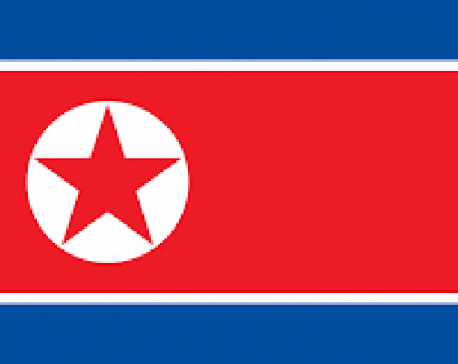
North Korea fires two missiles as U.S. condemns flurry of tests
SEOUL, Jan 27: Nuclear-armed North Korea fired what appeared to be two short-range ballistic missiles on Thursday, drawing condemnation from... Read More...
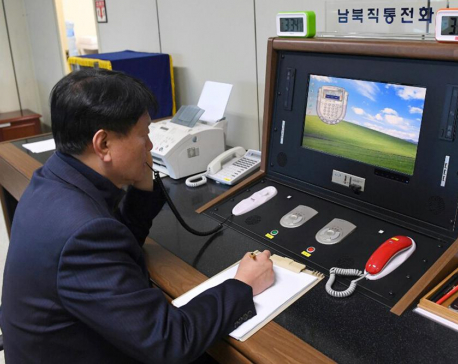
2 Koreas restore hotline despite North’s missile tests
SEOUL, South Korea, Oct 4: North and South Korea restored a stalled communication hotline after weeks of a hiatus in... Read More...
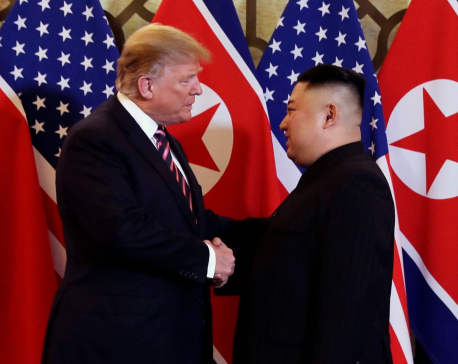
Trump meets North Korea's Kim in Vietnam for second nuclear summit
HANOI, Feb 27: North Korean leader Kim Jong Un and Donald Trump met in Hanoi on Wednesday for their second... Read More...

Just In
- Nepal Investment Summit (live)
- Ilam-2 and Bajhang 1(a) by-elections: Vote counting begins
- Nepal is a prime destination for international investment: FinMin Pun
- President Paudel issues ordinance related to facilitation of investment
- Hearing on Cricketer Lamichhane’s appeal today
- Clear Policies Set to Boost American Investment in Nepal: US Ambassador Thompson
- Second T-20 series: Nepal loses toss, set to go for fielding first
- Nepal Investment Summit 2024 and Victor Hugo Moments for Reforms






-1200x560-wm_20240427144118.jpg)




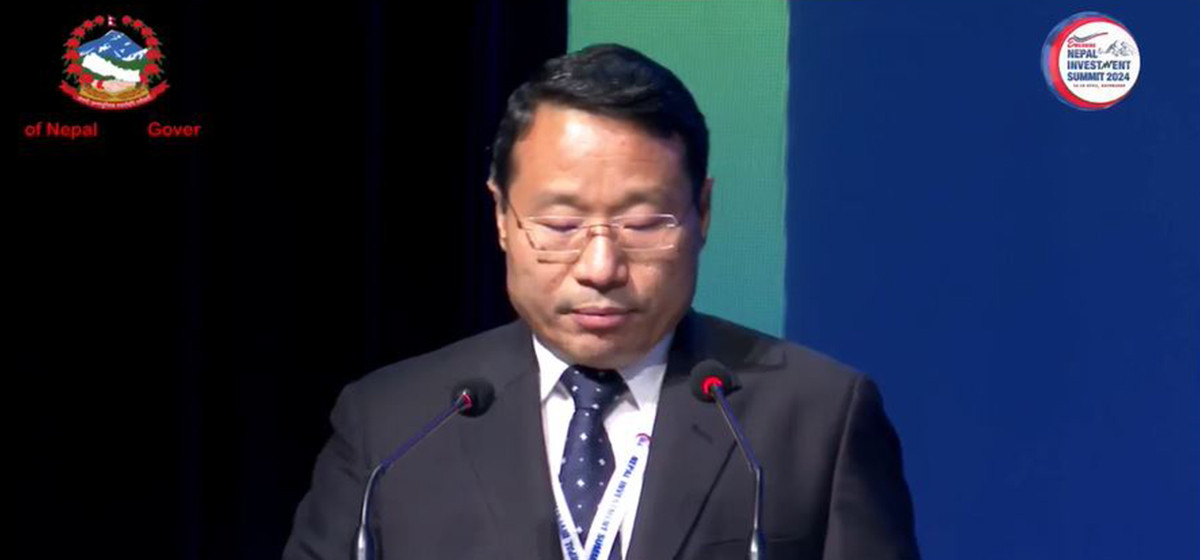
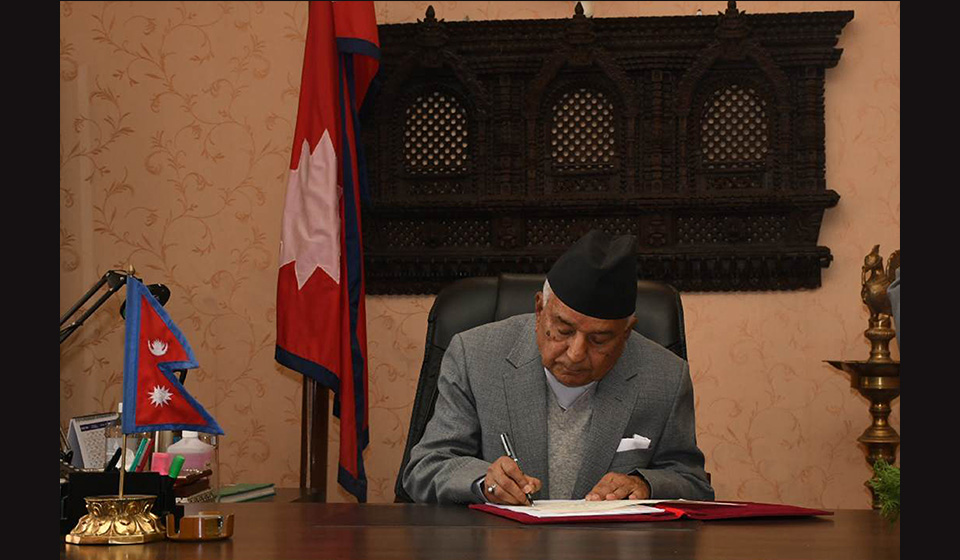




Leave A Comment